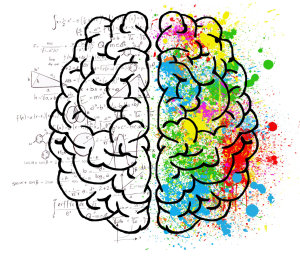Dyslexia: A Different Way of Thinking
| Dyslexia is a learning difference, not a disability. The dyslexic brain isn’t broken or flawed—it’s simply wired differently, often bringing unique strengths in areas like creative problem-solving, big-picture thinking, and innovative approaches to challenges.
While individuals with dyslexia may process language differently than their peers, this difference doesn’t define their potential. With the right support and specialized instruction tailored to how their brain naturally works, people with dyslexia can develop and strengthen the neural pathways involved in language processing. This targeted approach helps them build the skills they need to thrive academically and professionally. Understanding dyslexia as a neurological variation, rather than a limitation, opens doors to recognizing the remarkable abilities that often accompany this learning difference. Many successful entrepreneurs, artists, scientists, and innovators throughout history have been dyslexic, demonstrating that different doesn’t mean less capable. |
 |
Understanding Dyslexia
Dyslexia is a neurobiological processing difference that affects how the brain processes language. This learning difference primarily impacts the phonological component of language—the ability to recognize and manipulate the sounds within words. Because dyslexia exists on a spectrum, individuals may experience varying degrees of symptoms and characteristics, which can make identification more challenging.
What Causes Dyslexia?
While researchers continue to expand our understanding of dyslexia, the exact cause remains under investigation. Current evidence points to atypical neurological development in the brain regions responsible for language processing and learning. Genetics also plays a significant role—up to 40% of people with dyslexia have a first-degree relative who experienced similar reading difficulties, suggesting a hereditary component.
Common Misconceptions About Dyslexia
Dyslexia is not:
A sensory problem – People with dyslexia receive accurate information through their ears and eyes. The difference lies in how the brain processes and interprets this information.
Related to intelligence – Most individuals with dyslexia demonstrate average to above-average intellectual abilities and often excel in areas outside of language processing, such as creative thinking, problem-solving, and spatial reasoning.
Caused by emotional difficulties – While living with unaddressed dyslexia can lead to frustration and discouragement, emotional challenges are typically a result of the condition rather than its cause.
Culturally specific – Dyslexia occurs across all cultures, ethnicities, and socioeconomic backgrounds, affecting people regardless of their cultural or linguistic heritage.
Roughly 1 in 5 people have dyslexia.
There is much discussion and criticism of how the number of people with dyslexia is determined.
Below are some scientific articles leading the discussion on the prevalence of dyslexia